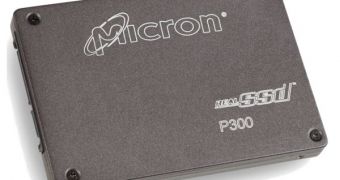Some end-users may be aware of the fact that makers of SSDs have begun to move to more advanced NAND Flash chips, and after some issues with lower capacities and performance, Micron decided to come forth itself and dispel certain concerns.
Some time ago, OCZ was the first company to announce transition from 3Xnm processes to the 2Xnm technology.
Unfortunately, it appeared to hit some difficulties when it had to reduce user-accessible capacities in order to reserve more for over-provisioning.
This would have been all well and good, but the outfit didn't actually mention this to its customers, some of which were especially put off, eventually prompting OCZ's decision to offer free SSDs.
Micron is said to have explained that the early batches of 25nm MLC NAND chips did have a lower reliability, but that no issues are left anymore (or they will be surpassed soon) because 25nm chips have reached or are close to maturity, so to speak.
"You have probably seen some of the forum buzz about new 25nm NAND SSDs. One of our SSD competitors rolled one of their existing models to new 25nm NAND, but they created a slower, lower-capacity drive - and did not change the model number or any of the marketing to acknowledge these shortcomings,” said Justin Sykes, a spokesperson for Micron, in a blog post.
“Their customers are upset. The end result of all this has created some negative perceptions about the quality of 25nm NAND, which is really misplaced. It is possible to build great SSDs with 25nm NAND, but you do have to be deliberate about your process and objectives (it also helps to have inside knowledge about how that NAND works)."
Micron also said that it takes the reliability of its next-generation RealSSD C400 "very seriously and have gone to great lengths to develop advanced firmware algorithms that manage the NAND."
Apparently, the element behind OCZ's and other early adopters difficulty in reaching a balance between endurance, performance and capacity was that they lacked access to whatever 'solution' Micron came up with.

 14 DAY TRIAL //
14 DAY TRIAL //